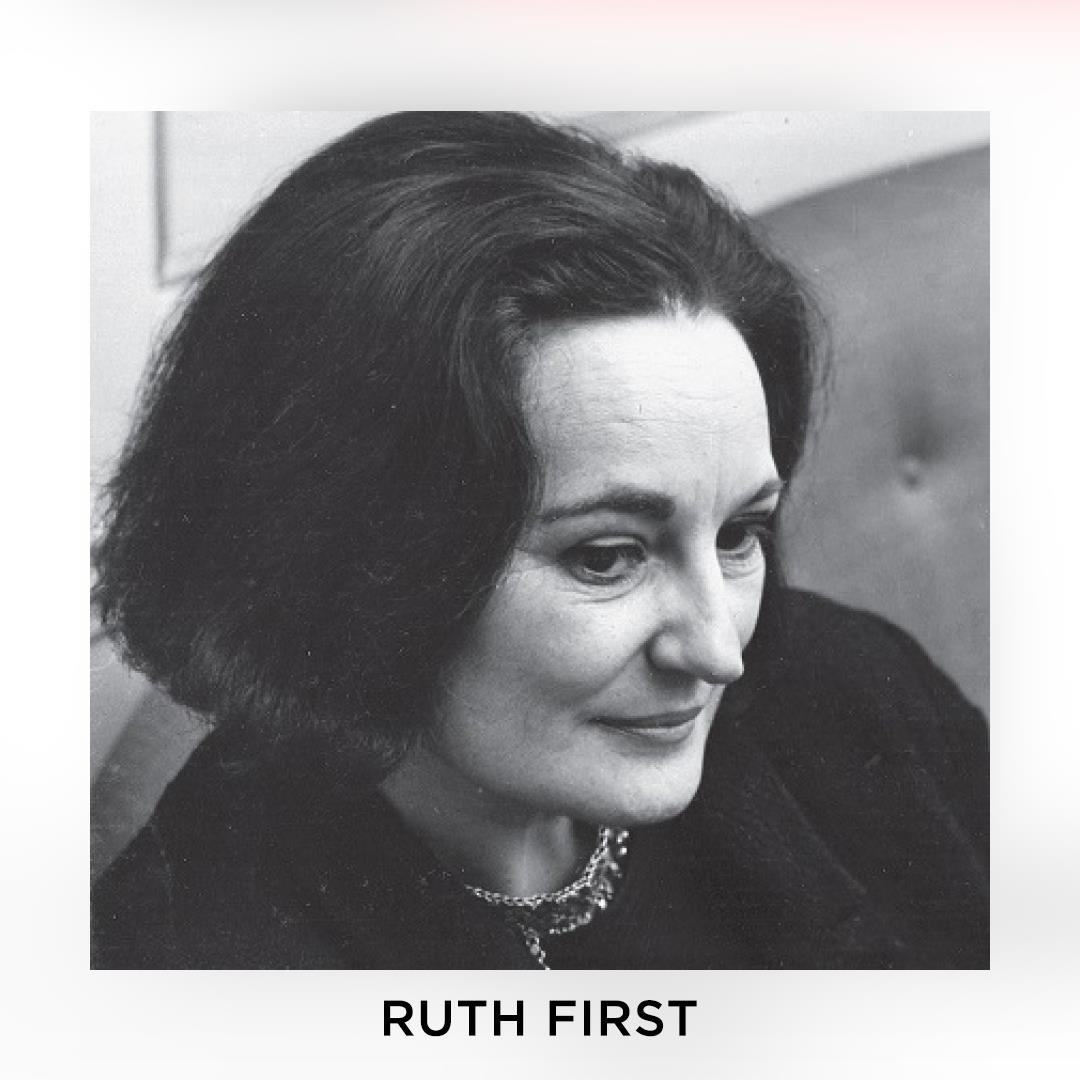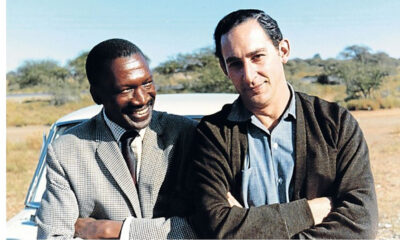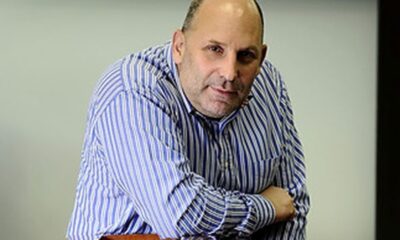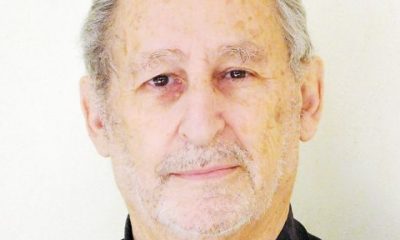
Featured Item

Ruth First’s legacy lives on in Jeppe Girls
Published
1 year agoon
Jewish anti-apartheid activist Ruth First may have been killed by a letter bomb sent by South Africa’s security police back in 1982, but 40 years later, her legacy lives on in scholars at Jeppe High School for Girls.
This year, there are 65 Ruth First scholars at the school, and there are 58 alumni who have benefited from the Ruth First Jeppe Memorial Trust scholarship programme, run by Jeppe High School for Girls.
First, an alumnus of the school, embodies the bravery and dignity the programme encourages in its beneficiaries.
As South Africa commemorates 21 March 1960, when human rights were disregarded as police opened fire on a peaceful anti-apartheid protest march, killing 69, the programme celebrates First’s legacy.
Following the Sharpeville Massacre, the government declared a State of Emergency and detained many prominent anti-apartheid activists. First was forced to flee to Swaziland.
She returned to Johannesburg six months later to become editor of New Age, however political persecution was on the increase.
Soon afterwards, in 1963, First was arrested for her anti-apartheid efforts and detained under the 90-day detention law. She spent 117 days in solitary confinement. Later, First was forced to go into exile, but continued to be active in the anti-apartheid movement until her murder.
Former headmaster of Jeppe High School for Boys, Kevin Tate, who is also the manager of the trust, was the person behind putting the trust in First’s name.
“When I learned that Ruth First was a former Jeppe High School for Girls pupil, I became intrigued by her story,” he said. “She was a revolutionary figure. Here was a woman who at 18 years of age spoke in open-air political debates at the University of the Witwatersrand about concepts like justice and equality, which in the early 1940s was ahead of her time.
“We chose to name the trust after Ruth as she embodies the courage and strength we hope to instil in our learners. The Jeppe motto is ‘Forti nihil difficilius’. Translated from Latin, this means, ‘For the brave, nothing is too difficult.’”
Tait said that as a Jeppe pupil, Ruth was studious and extremely intelligent. She married Jewish politician and anti-apartheid activist Joe Slovo at a tentative time in the nation’s history and was devoted to him, their three children, and her career, but was also a “real lady”, as Tait called her. To him, this meant she kept her hair and dress-style impeccable, but still risked everything for the cause she believed in.
She wrote against the apartheid regime, and fought alongside big names like Nelson Mandela, Albie Sachs, and Ahmed Kathrada against injustices in the country. She was also among those in the team that drafted the Freedom Charter.
Now retired, Tait continues to be involved with the trust, and recently handed over its reins to school social worker Robyn Hill.
To become a Ruth First scholar, applicants undergo an interview process. As part of this, they must write an essay about Ruth First. “Through their writing and perceptions, we are again reminded of what strength, integrity, and courage can accomplish,” said Hill.
She said the trust gave many pupils an opportunity to get a quality education. “We believe an investment in a learner and in education can change not just one life but the life of a family and even a community,” she said. “One of the former scholarship recipients is now in a top-ranking position in banking. Another is a qualified medical doctor.”
Tait and Hill said that over the years, they had met many of First’s friends and heard different stories about her from them. “We feel like we knew her too,” they say.
Over the years, the school has also welcomed in a succession of high-profile figures. Among these is Justice Albie Sachs, who is also the trust’s patron.
Sachs commented that First was a legend in anti-apartheid circles long before she was killed by the letter bomb.
“She grew up in a strongly anti-racist home. When she went to do a course on sociology at Wits, she began to work closely with Nelson Mandela, Ismail Meer, and other activists in the struggle for national liberation of the oppressed black majority,” said Sachs.
He spoke about how after being detained in solitary confinement, without access to lawyers, family members, or being taken to court, First had gone into exile with her three daughters, Shawn, Jillian, and Robyn. “In England, she wrote a number of books for the Penguin African Library supporting the decolonisation of the African continent.”
Just two weeks before speaking to the SA Jewish Report, Sachs said he had found himself in the office in which Ruth First was killed, explaining to visitors from many countries why he and others had loved her so much. “Later, we went to the cemetery where she and a dozen other African National Congress supporters who had been killed by a commando raid in Matola lie buried. I recalled the beautiful songs that were sung at her burial, and the roses that were thrown into the grave as her body was lowered there, as her mother, Tilly, cried, and we all wept.”
Tait said that before officially adopting Ruth First as the trust’s name, he had approached a Jewish authority and asked him what he thought of the school using First as the focal point of the scholarship. “It was well-received,” he said. “Ruth First is a feather in the cap of the South African Jewish community and the community at large.”
Tait, Hill, and the team from the school’s governing body hope to awaken the stories of courage, honour, and bravery, such as those of First and Sachs, in the hearts of the youth attending the school.
“Who knows, maybe there’s a Ruth First among us,” said Hill.
- For more information on the Ruth First Jeppe Memorial Trust, contact ruthfirstjeppetrust@jeppegirls.co.za











yitzchak
Mar 23, 2023 at 12:36 pm
let’s not forget the deep anti-Zionism of the SA Communist Party towing the Stalinist Party Line and their silence in the face of deep anti semitism in the Soviet Union.